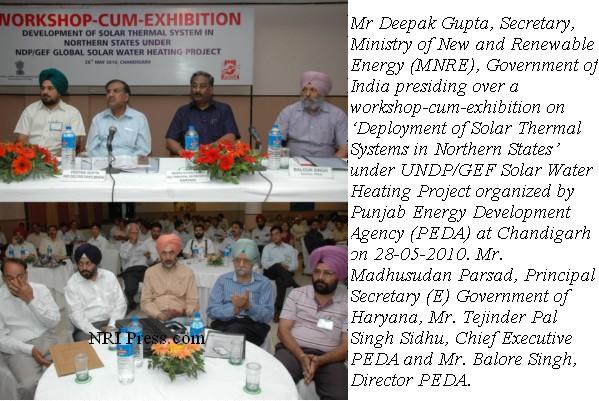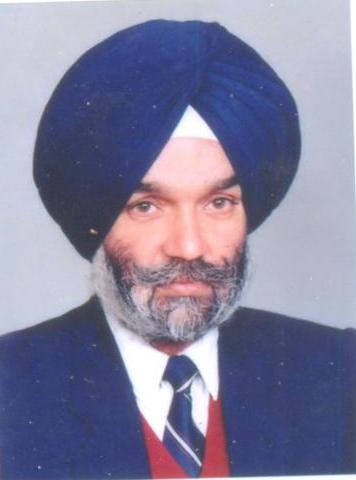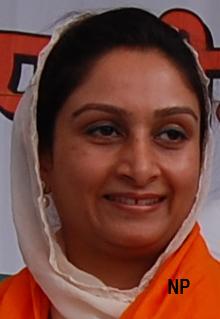| Connecting
over 25 millions NRIs worldwide |
|
|||||||||||||||||||||||
|
|||
|
SCHEDULE FOR QUARTERLY LOK ADALTSANNOUNCEDCHANDIGARH, MAY 28: Punjab Legal Services Authority has issued schedule of Quarterly Lok Adalats to be held in all over Punjab for the period from July 2010 to September 2010. Stating this here today, a spokesman of the Punjab Legal Services Authority said that Lok Adalats would be held at Amritsar, Patti, Ajnala, Baba Bakala, Tarantarn on 24-07-2010 (Saturday); Labour Court Amritsar, Bathinda, Gurdaspur, Jalandhar, Ludhiana and Patiala on 30.7.2010 (Friday); Gurdaspur, Batala, Pathankot, Ludhiana, Jagraon, Khanna and Samrala on 31-7-2010 (Saturday), Jalandhar, Nawanshahar, Nakodar, Phillaur, Balachaur on 7-8-2010 (Saturday), Kapurthala Sultanpur Lodhi, Phagwara on 14.8.2010 (Saturday); Hoshiarpur, Garhshankar, Dasuya, Mukerian, Ropar, Mohali, Anandpur Sahib, Kharar, Derabassi on 21-8-2010, Sangrur, Moonak, Barnala, Malerkotla, Dhuri, Sunam, Fatehgarh Sahib and Amloh on 28-8-2010 (Saturday), Bathinda, Talwandi Sabo, Rampura Phul, Patiala, Rajpura, Nabha, Samana on 04.9.2010 (Saturday), Mansa, Sardulgarh, Budhlada, Faridkot, Moga, Muktsar, Malout, Gidderbaha on 18-9-2010(Saturday), and Ferozpur, Abohar, Fazilka, Zeera, Jalalabad West, on 25-9-2010 (Saturday). The Spokesman further said that the main objective of the Lok Adalats was to dispose of litigation on the spot and make it hassle free. It also saved the precious time and money spent on the litigation by public. ------------------------------------------------------------------------------------------------------------------------
CENTRE UNVEILS NEW PLAN TO BOOST SOLAR POWER Chandigarh May 28: The Union Government has envisaged a major plan to boost solar energy and set aside Rs 1000 crore for subsidizing solar power. Interacting with media after inaugurating a workshop-cum-exhibition on ‘Deployment of Solar Thermal Systems in Northern States’ under UNDP/GEF Solar Water Heating Project organized by Punjab Energy Development Agency (PEDA) here today, Mr Deepak Gupta, Secretary, Ministry of New and Renewable Energy (MNRE), Government of India said that under the National Solar Mission it was proposed to declare Chandigarh, Amritsar and New Delhi as solar cities where people would be encouraged to harness solar energy by roof top panels and contribute in national power grid. He informed that with a lot of scope in the power sector, the Union Government was working out a plan to reduce the cost of solar panels by indigenising them. He said that study was on to produce silicon chip used in panels indigenously. Emphasising on the effective implementation of Solar bye-laws, Mr Gupta said that the States should strictly implement the solar bye-laws necessitating every hotel, hostel, hospital, community centre to use solar water heating system. He regretted that lax implementation of solar bye-laws resulting in tardy implementation of solar plan. Speaking about future plans in the new energy sector, Mr. Gupta said that MNRE was also encouraging Independent Power Producers and their task was being facilitated by single window service in the Ministry. He said that MNRE was targeting too produce 1300 MW power from new energy sector within next three years. The workshop was aimed to analyse the present status of solar thermal systems including solar water heaters and impediments in promotion of solar power besides discussing technological advancements, manufacturing, economics, policy issues and evaluating different financing models and implementation modalities. Apart from this Solar Water heating systems, solar steam generating, cooking systems, Solar Passive/ Energy efficient buildings had also been covered in the workshop, particularly in the context of the national rating system GRIHA being promoted by the MNRE. Later on various government agencies, industrial units and manufacturers of solar thermal devises gave their detailed presentations. Besides this, initiatives taken by various municipals authorities, government agencies builders, hospitals, hotels situated in Punjab, Haryana, Himachal and UT were also discussed at length. The new technologies and implementation strategies were also discussed by the participants. M/s Trans Solar gave presentation on SWH installation in ESCO mode, TERI on green building / GRIHA, M/s Thermax on Solar Steam Generating Systems for cooking and space heating. Earlier Mr. Madhusudan Parsad, Principal Secretary (E) Government of Haryana, Mr. Tejinder Pal Singh Sidhu, Chief Executive PEDA, Mr. Balore Singh, Director PEDA and Mr. Ajit K. Gupta National Project Manger UNDP/ GEF Solar Water Heating Project also addressed the workshop. -------------------------------------------------------------------------------------------------------------------------
RTI Act was enacted to promote transparency and accountability and to establish the practical regime of right to information. Chandigarh May 27: In a landmark Judgment, the Punjab Information Commission today ruled that a candidate appearing in a competitive examination for employment in government service has the right to access, after declaration of result, evaluated answer scripts and this right extends to accessing not only his own but also the answer sheets of other competing examinees.
The State Commission gave an unequivocal finding that an answer sheet is ‘information’ within the meaning of RTI Act and its discloser is not prohibited under the transparency law. It was held that every candidate has an inherent right to see how he and other competing candidates have performed; a larger public interest makes it imperative that the basis of selection shall be put in public domain. The Commission held that the RTI Act was enacted to promote transparency and accountability and to establish the practical regime of right to information. Competitive examinations conducted by various Constitutional / Statutory / government departments, for recruitment to public services, are not exempt from its purview. The entire gambit of selection process to government services, including the evaluated answer books of examinees, falls well within the pale of public gaze and therefore could be accessed under the RTI Act. The citizens have the right to know every public act and for that matter everything done in a public way by public functionaries.  The judgment will have far-reaching implication and will help to bring total transparency in the much maligned system of public recruitment. Speaking for the five members Full Bench of the Commission, Mr. R.I. Singh, Chief Information Commissioner observed,” Post declaration of the result, any disclosure will only lend transparency to the competition and thereby reaffirm faith in the fairness of the system, by placing the entire process in public domain. After all, a competition is nothing but an equal opportunity to prove unequal talent. Let, therefore, both - the equality of opportunity and inequality of talent - be visible and felt; this would happen only if the entire process is transparent, for anyone and everyone to see. Discloser, therefore, would be in the larger public interest.” The issue was raised before the State Information Commission by Shri Surinder Kumar s/o Shri Ram Chand, an ex-servicemen, who had appeared in the competitive examination conducted for appointment to the post of Inspector, Excise and Taxation, Government of Punjab, on 23.11.2008. Dissatisfied with the result of the examination, he had approached the PIO of the department of Excise and Taxation under the RTI to obtain copies of individual answer sheets of the nine selected ex-servicemen candidates. However, the PIO declined his request on the grounds that answer-books are exempt from discloser under Section 8 of the RTI Ac. It was argued that an answer scripts is personal information of candidate; it is an expression of his individual personality. Every citizen has a right to privacy. To allow answer sheets to be accessed by others would pierce privacy and violate the person of the candidate, apart from opening a Pandora’s Box, which would not serve any public purpose. Besides, discloser, it was pleaded would be prohibited under a fiduciary relationship which exists between the examiner and examinees. Rejecting the argument that an answer sheet would violate the privacy of individual candidates, the Commission observed that “An answer sheet is not a private parchment supplied by a third party. It is a public paper in the custody of a public authority. The answer sheets or the marks obtained by candidates are not their private possessions, but sacrosanct record impacting public life and also the fate and future of the competitors. Nothing in the administrative realm is personal or private - those who choose to enter public affairs, must learn to live by public scrutiny.” The Commission observed that discloser would not be an unwarranted invasion of privacy of the individual candidate, but any denial of information would certainly amount to unwarranted infringement of equality of opportunity, as enshrined in Article 16 of the Constitution of India. The respondent, in denying access to the petitioner to his answer sheets, had based reliance on an earlier decision of the full bench of the Central Information commission, which had disallowed discloser of answer sheets of examinations conducted by UPSC and Staff Selection Board of government of India. Disagreeing with the decision of the Central Commission, the State Commission observed that, “The Central Commission, in our humble view, has not gone by the law, but by a perceived un-workability of the statutorily mandated rights. Expediency could never be a ground to keep the rights of citizens in suspended animation. Once the Central Commission had come to the conclusion that answer sheets are ‘information’ and that these do not fall within the exemption clauses of Section 8 (1) of the Act ibid, the only inescapable and legally sustainable conclusion would have been to allow access to the answer sheets, no matter who conducts an examination and for what purpose.” The State Commission also rejected the argument that any large scale discloser would introduce an element of uncertainty and make the system unworkable. The State Commission held, “Right to seek discloser of an evaluated answer sheet under the RTI law does not extend to a right to seek re-evaluation of answer sheets. The law only requires discloser. What happens thereafter - whether answer sheets should be open to re-evaluation or not, would entirely depend upon the policy / rules / regulations of the concerned Institution. Discloser, in fact, would lend stability to competitive examinations and may even reduce avoidable litigation, which at present, invariably tails all declaration of results, as an integral adjunct to public recruitment. “Rather than any possible harm or injury, discloser would do only well. It would stir up the examiners, make the assessment fairer and free from lapses or whimsical marking.” Taking judicial note of the news reports appearing in the local news papers regarding various scams in recruitment to public service, the Commission observed that, “ Scams, it seems, know no boundaries, of states or departments / institutions. The sweep of scams colours in red the entire canvas of North- West India, tainting all most all spheres of public recruitment pertaining to government departments, Universities, competitive entrance examinations for Institutions of higher learning, constitutional Institutions like Public Service Commissions and even the exalted Judiciary.” The Commission quoted 9 instances of irregularities reported in the Press in the last few months, covering UT Chandigarh, Punjab, Haryana and some Universities and observed, “Where does then the public interest lie – in opening the system to public gaze or in keeping it rapped under the veil of vested interests? What has made the system un-workable, - the culture of secrecy or transparency? When the disease is deep rooted, not the sugar coated palatable pills, but incisive surgery is the remedy. Deeper the malady, deeper would be the incision. Let us then not hesitate, under the grab of logistical constraints or illusory un-workability of the system or what is called ‘floodgate argument’, to perpetuate a regime long discarded by the RTI law.” Quoting from a Double Bench decision of Calcutta High Court, the State Commission rejected the argument that discloser of answer sheets would make the examination system un-workable due to large number of candidates seeking copies of answer scripts, the State Commission held that, “Inconvenience, un-workability, unfortunately, are not recognized grounds on which refusal could be based. Preposterous to assume that Parliament was not aware of the ground reality while enacting RTI Act.” The Commission further held that, “The observations and conclusions drawn in this judgment regarding access to evaluated answer sheets are valid for all types of examinations conducted by public authorities.. However, as the various educational bodies, including the eight Universities in the State and the School Education Board were not parties to the complaint-case, nor they had an opportunity to be heard, for the time being, therefore, we restrict our decision to examinations conducted for entrance to public services of the State, irrespective of whether such an examination is conducted by PPSC, Subordinate Services Selection Board or a departmental committee or through an authorized agency, like the University Institute of Applied Management Sciences, Punjab University.” Thus, for the time being the ruling given by the State Commission would be applicable to all examinations conducted for appointment to government jobs in the State of Punjab and not to examinations conducted by educational Institutions like Universities and School Education Board. The Commission has summoned the relevant record of answer sheets to be produced before it and observed, “Hence, in exercise of powers vested in the Commission under Section 18 (3) (d) and 18 (4) of the Act ibid and the enabling provisions of Civil Procedure Code, we requisition the record of the evaluated OMR answer sheetsof the selected Ex. Servicemen candidates, who appeared in the examination for the post of Inspector Excise and Taxation Punjab, 2008 conducted on 23.11.2008” The Commission also issued a show cause notice to the respondent PIO as to why penality should not be imposed on him for withholding the information from the present petitioner. The full bench of the State Commission which gave the judgment was headed by Mr. R.I. Singh, Chief Information Commissioner, Punjab and its other four members were Sh. Surinder Singh, Lt. Gen. P.K. Grover, Sh. PPS Gill, and Sh. DS Kahlon. ------------------------------------------------------------------------------------------------------------------------- RANJIT BALIAN APPOINTED AS CHAIRMAN PRTC Chandigarh May 28:- The Punjab Government has appointed Mr. Ranjit Singh Balian as Chairman of Pepsu Road Transport Corporation Patiala. Disclosing this here today, a spokesman of Punjab Government said that the appointment of Mr. Balina would be effected from the date he assumes the charge. Orders regarding the detail terms and conditions of Mr. Balian’s appointed would be issued separately, the spokesman added.  --------------------------------------------------------------------------------------------------------------------------
|
|||
| NRI
News Media |
|




